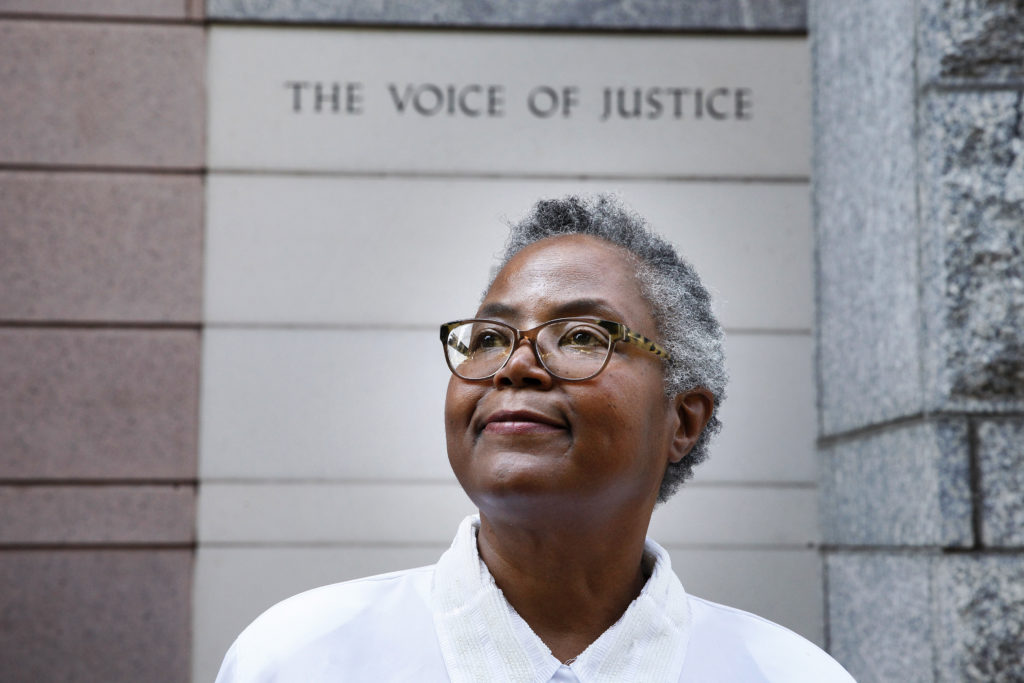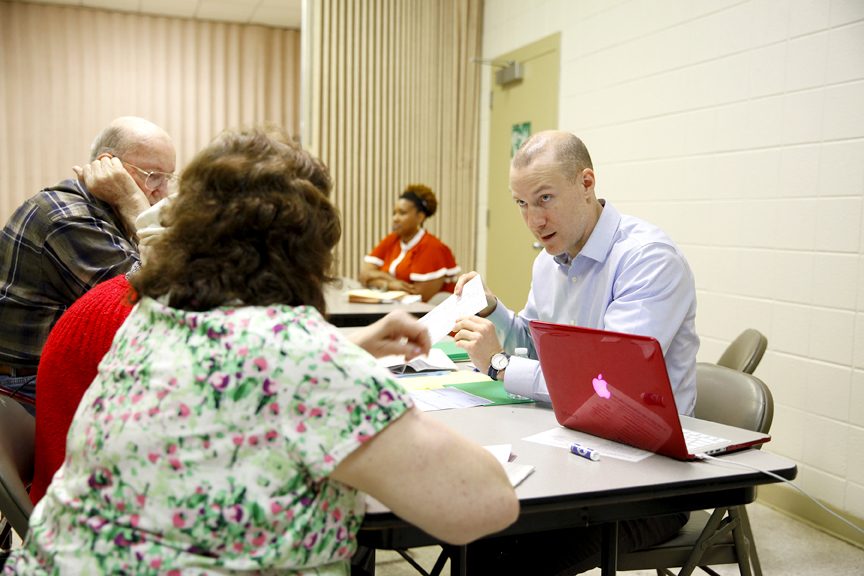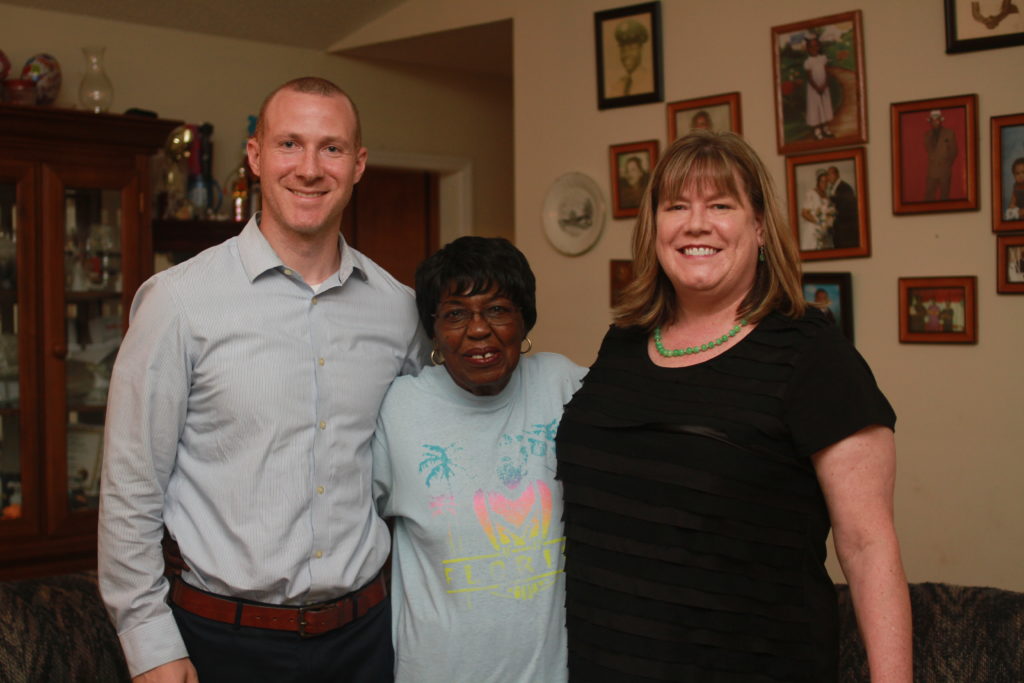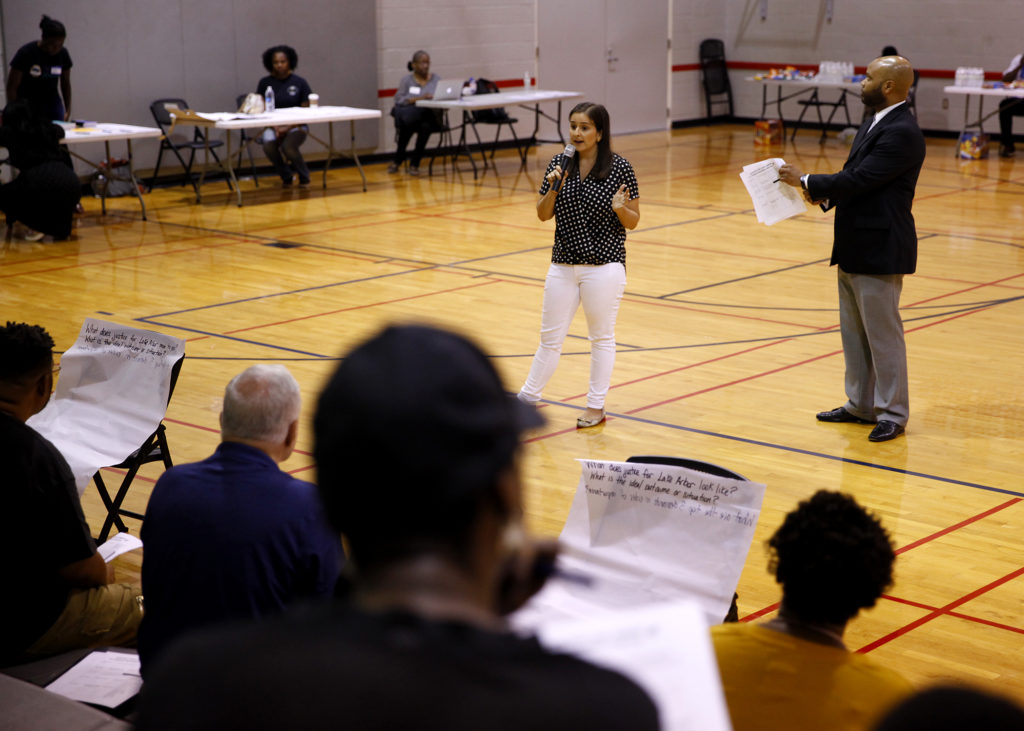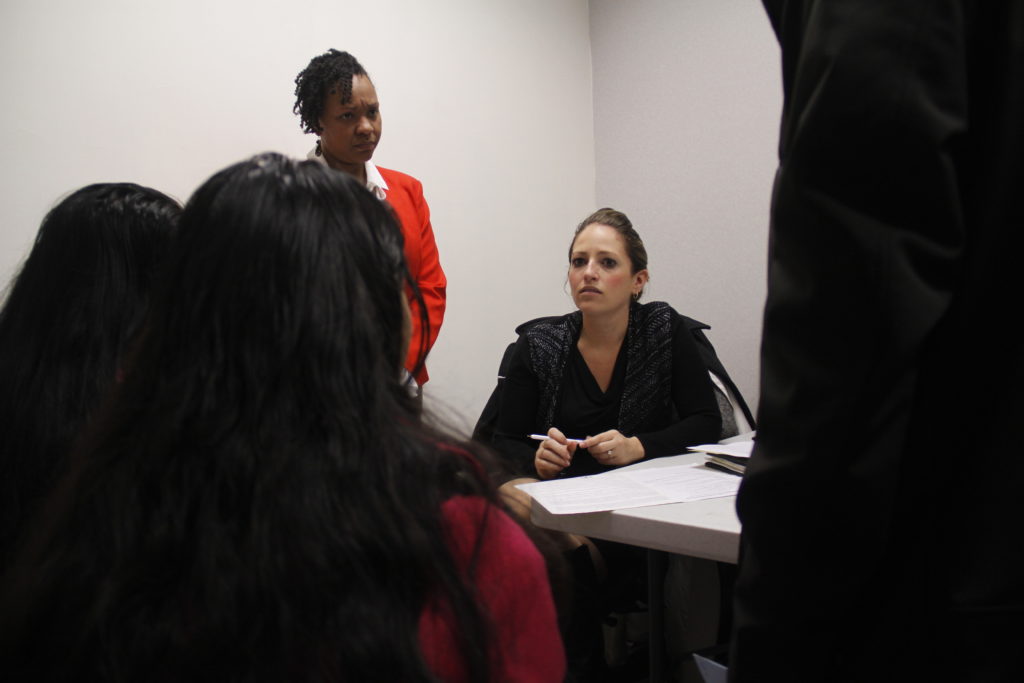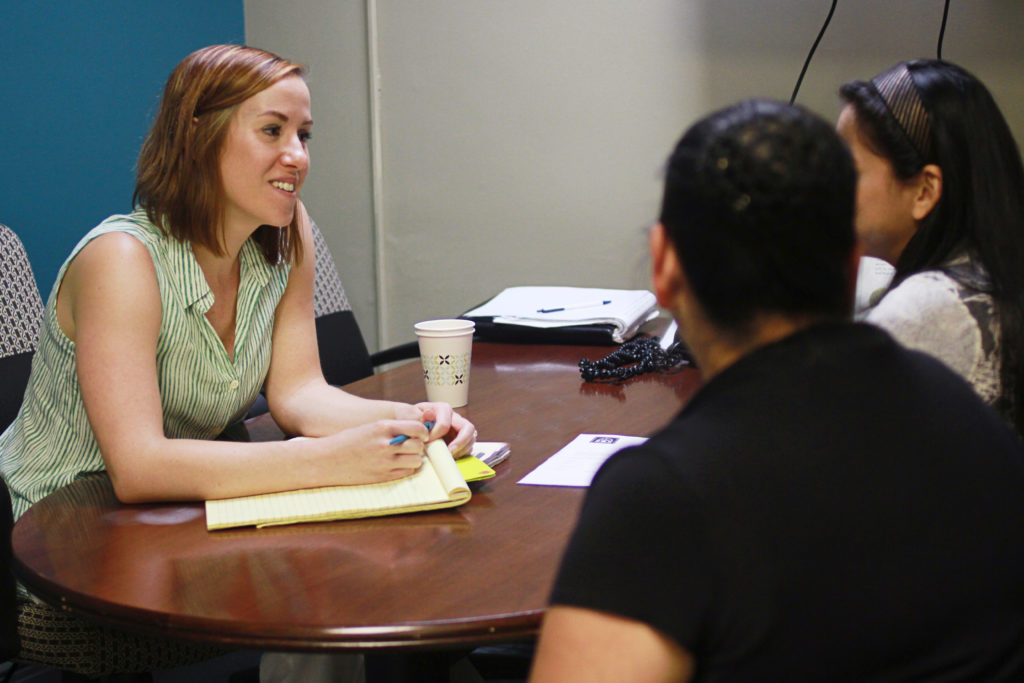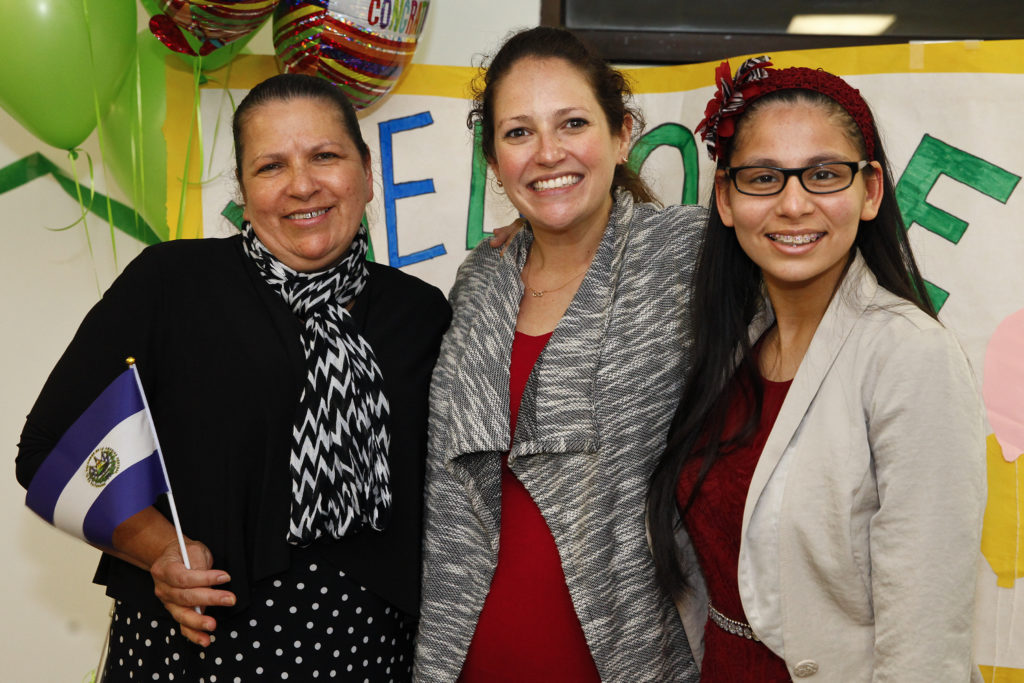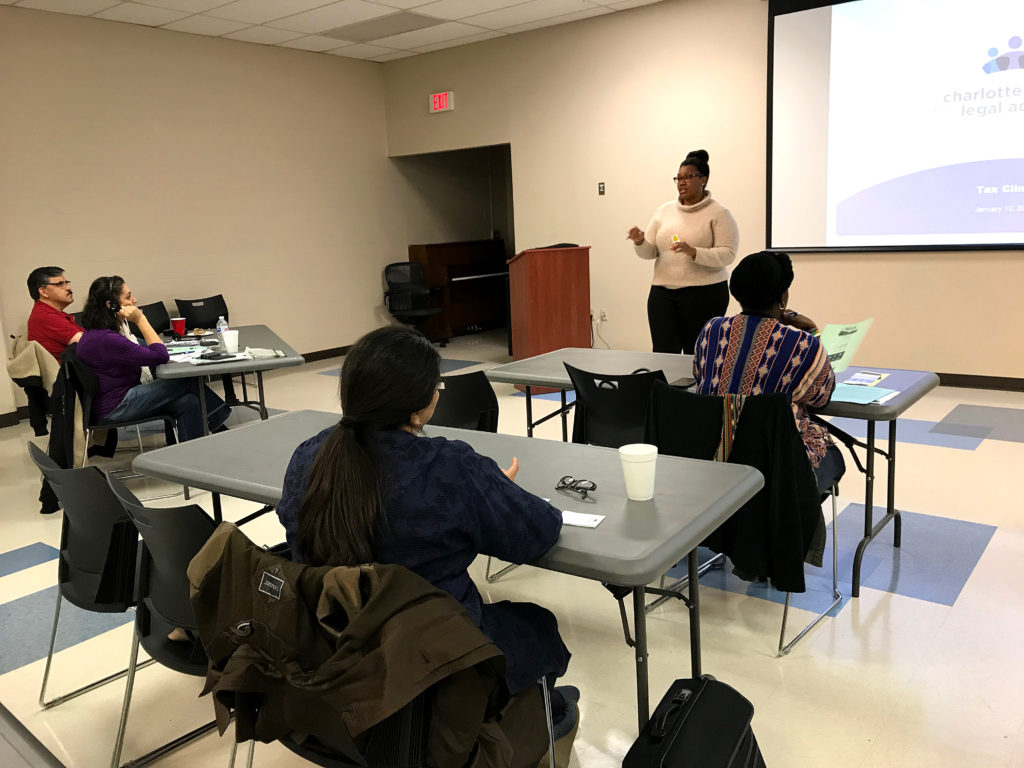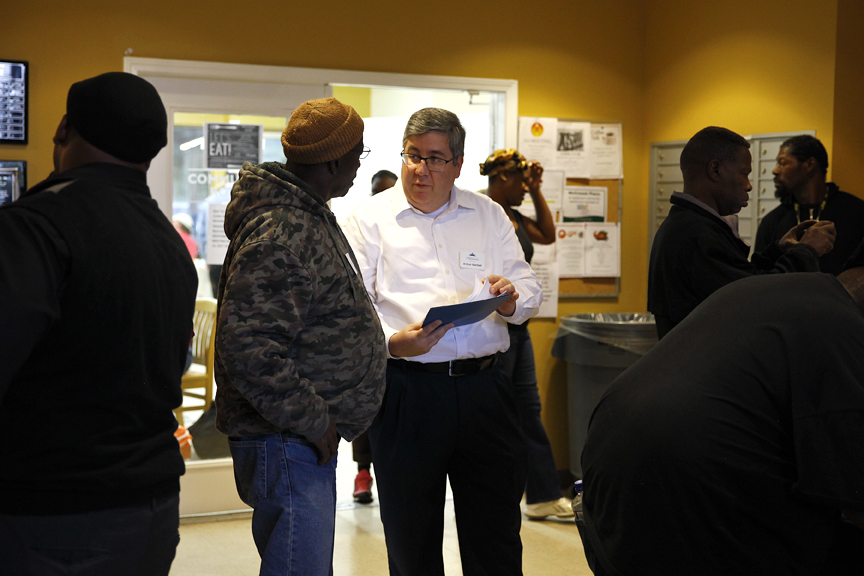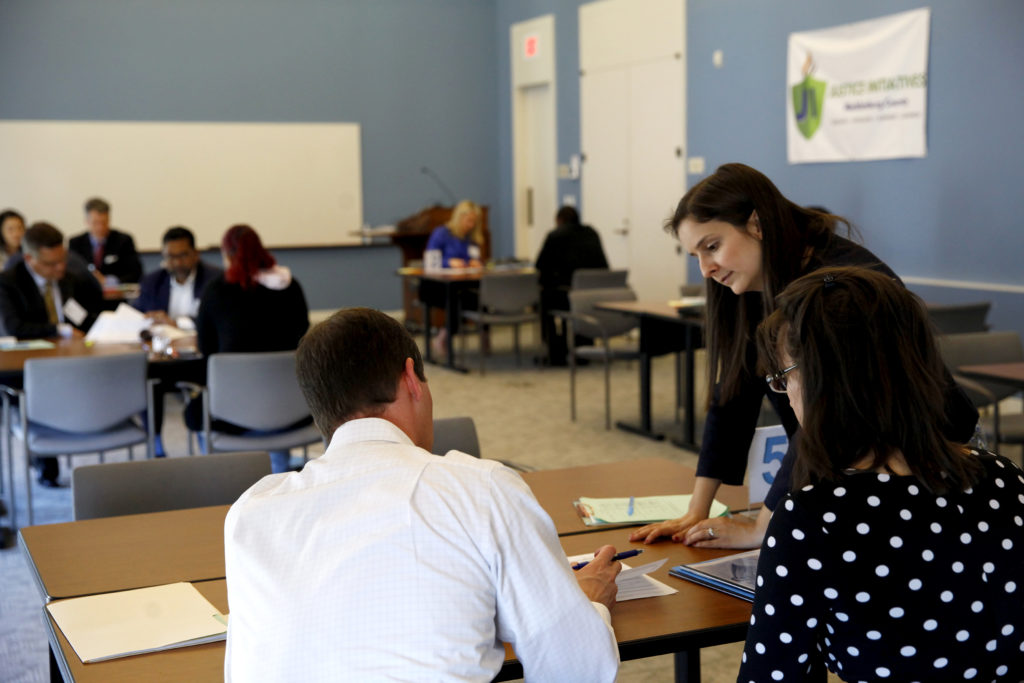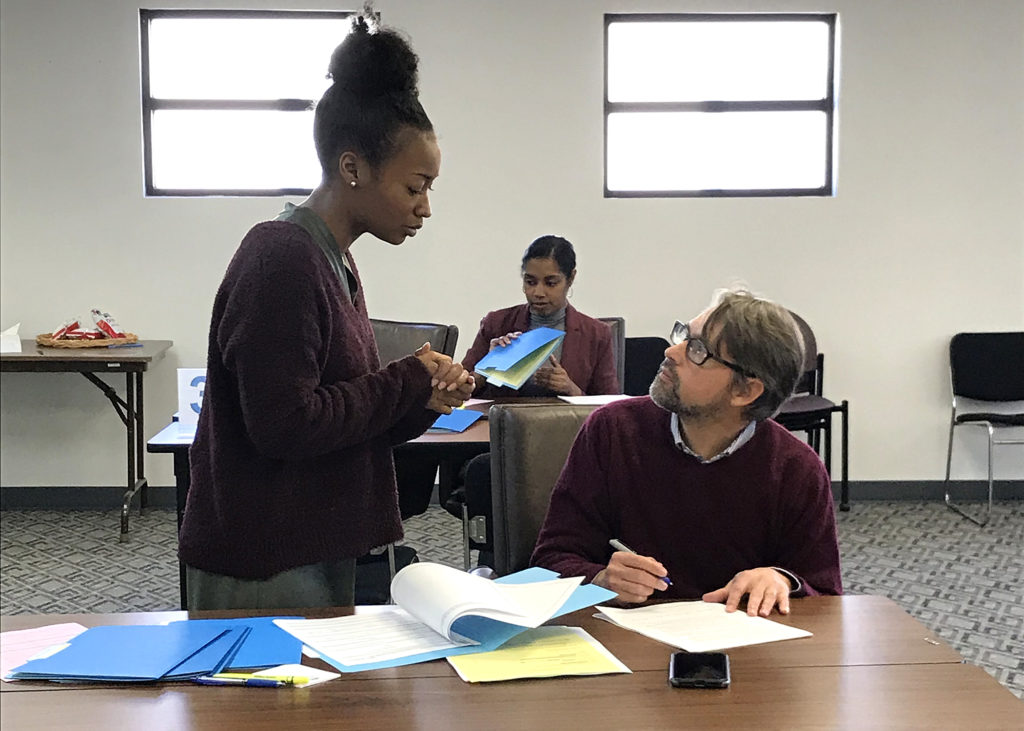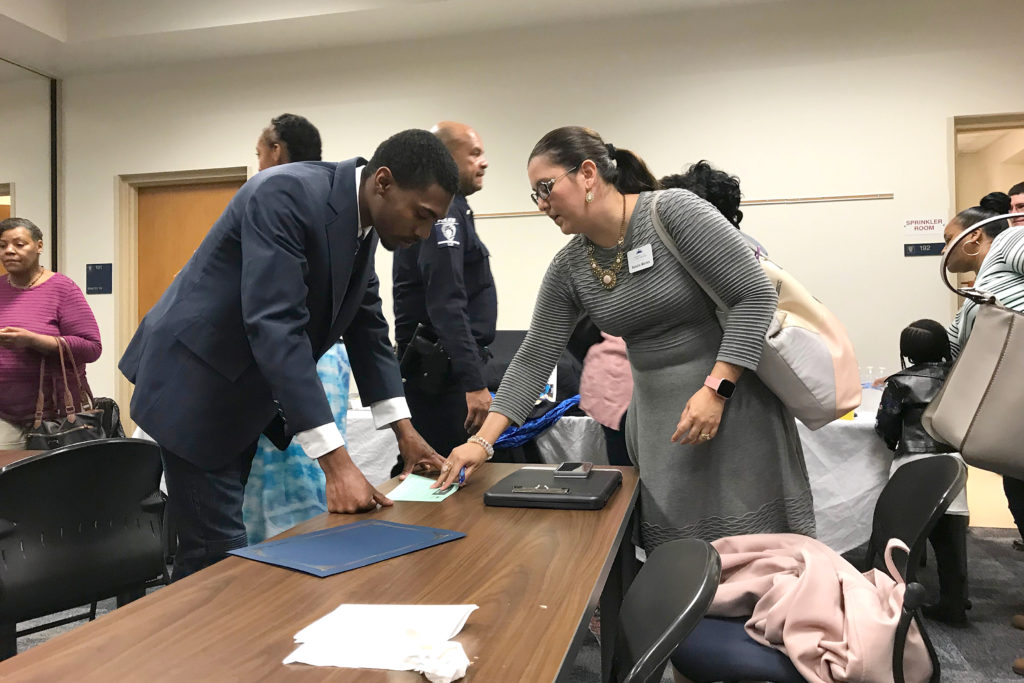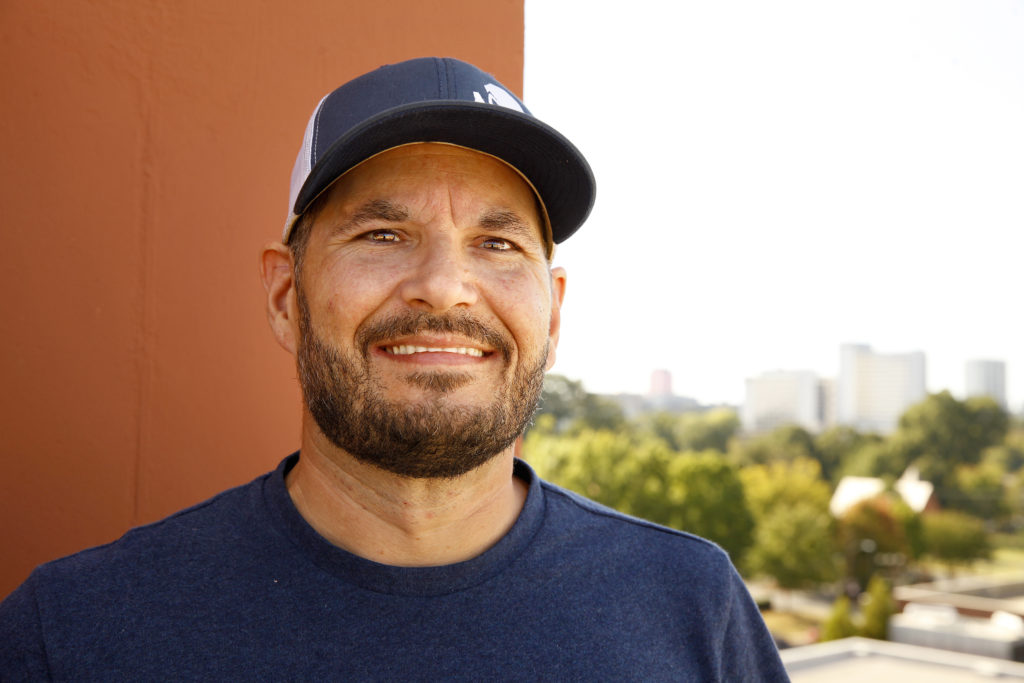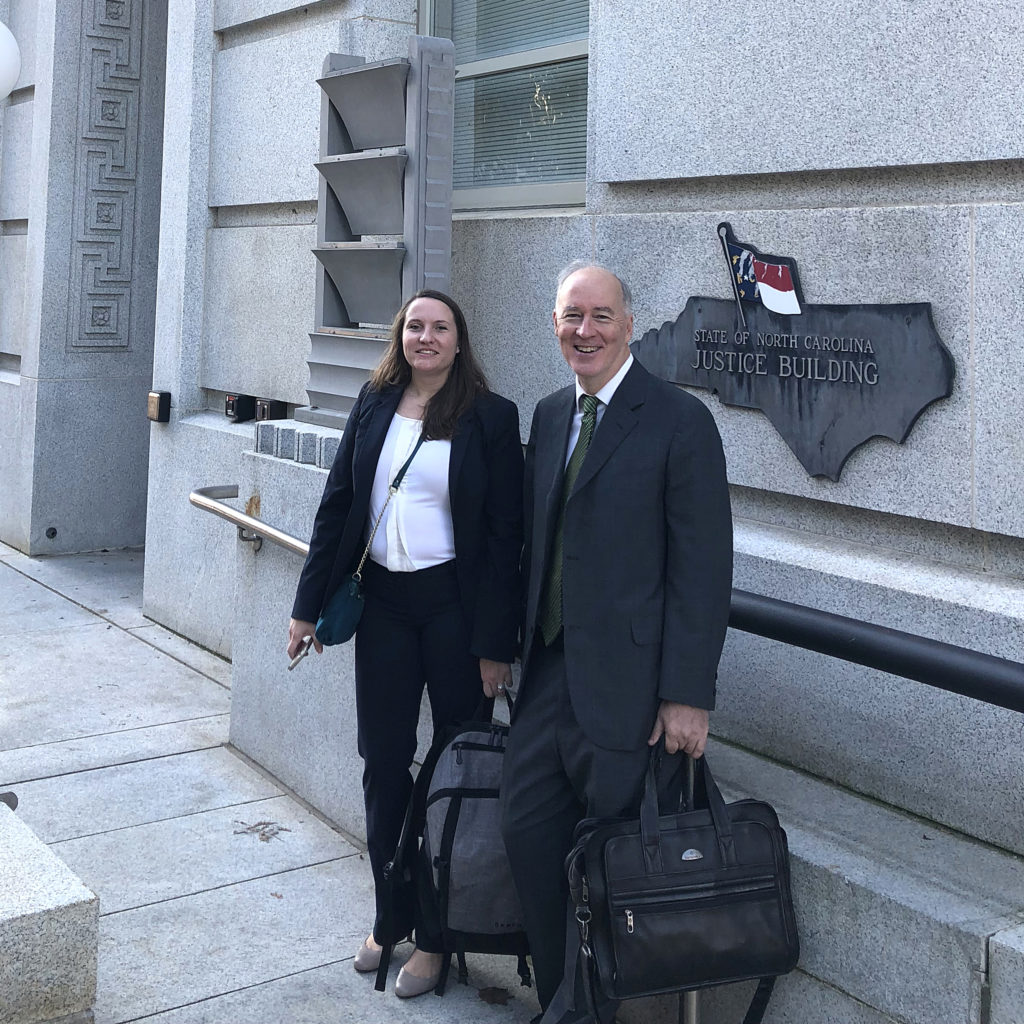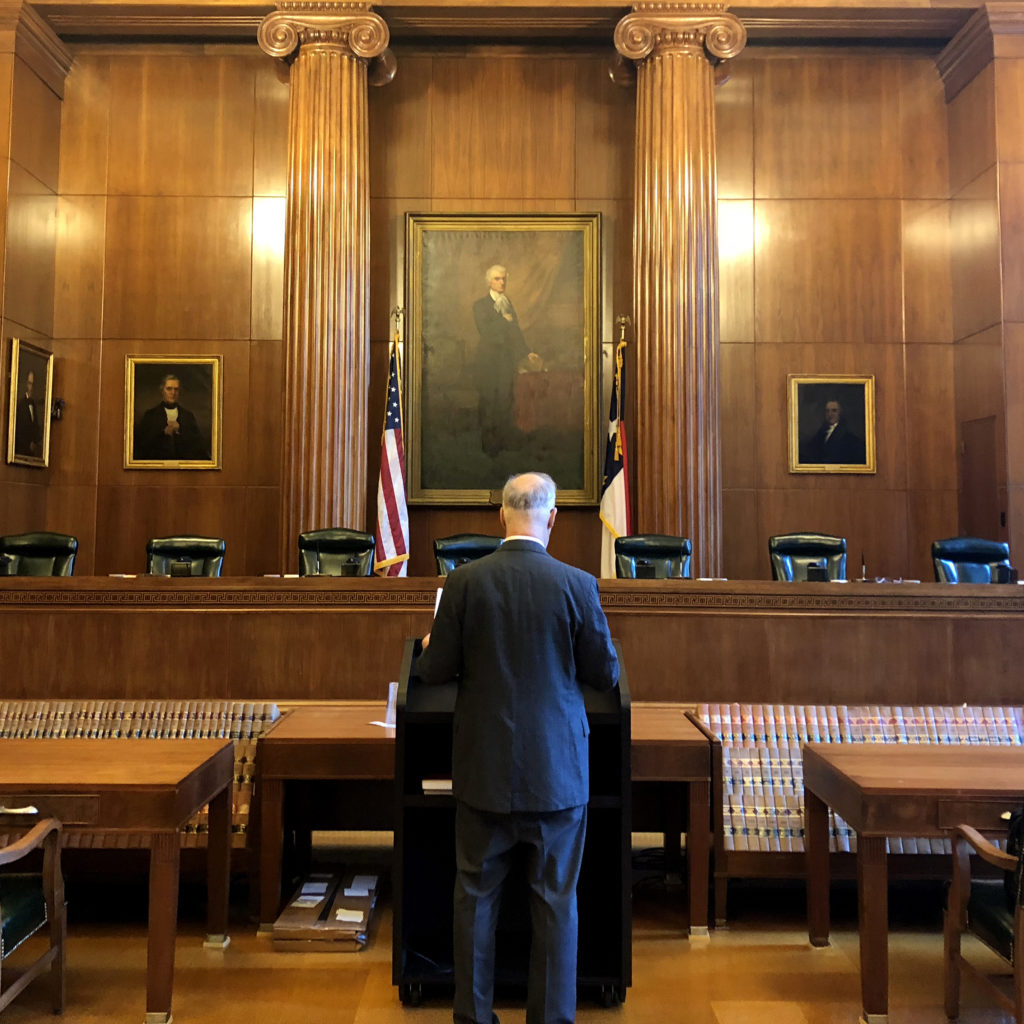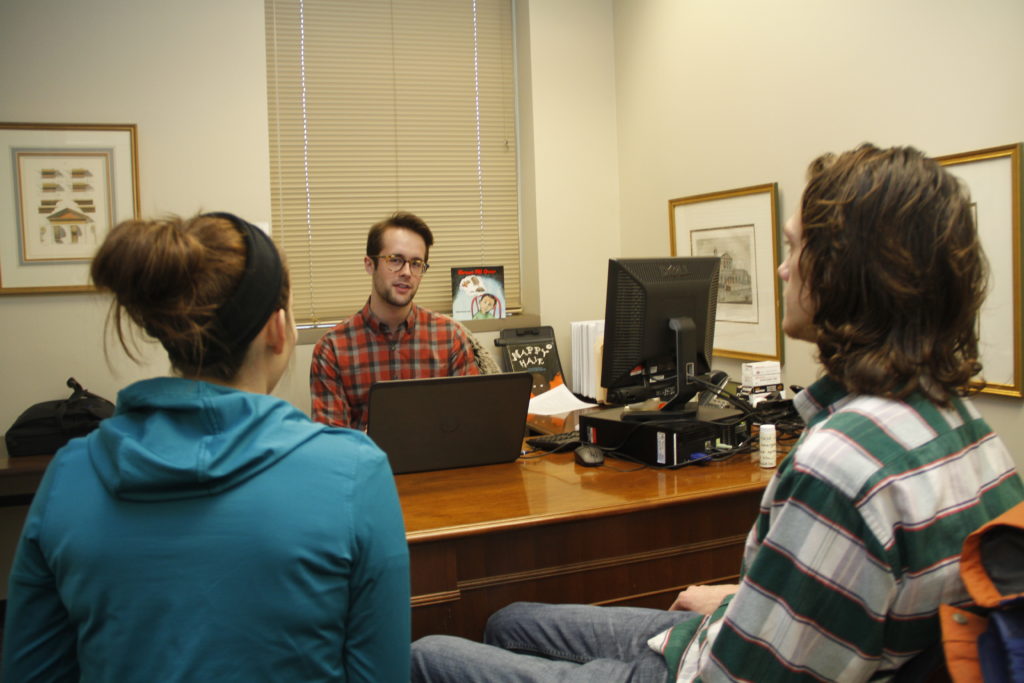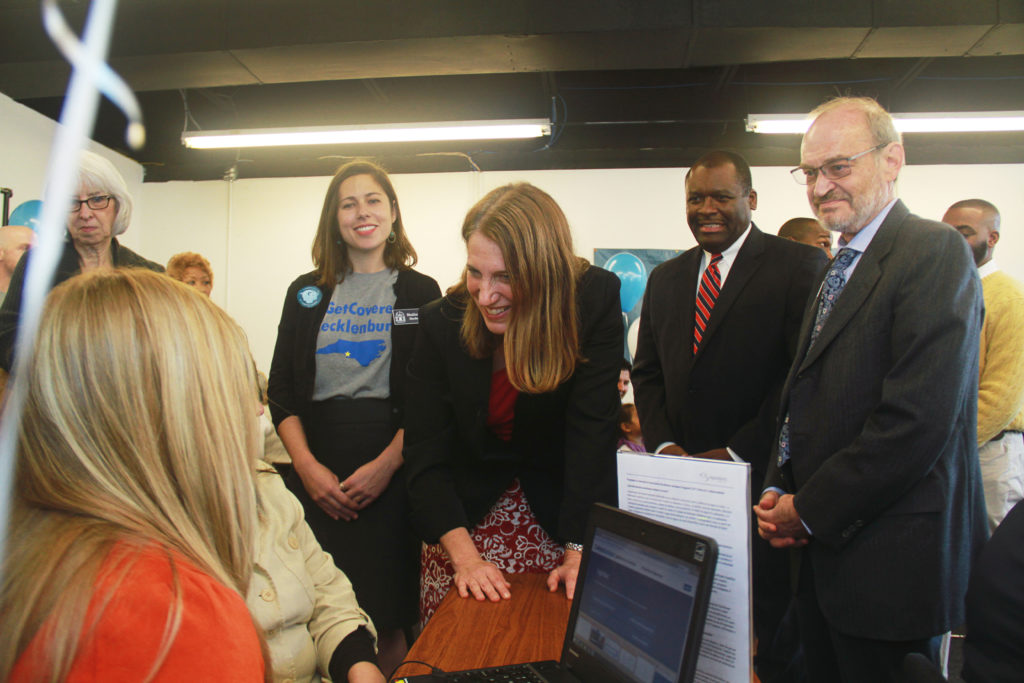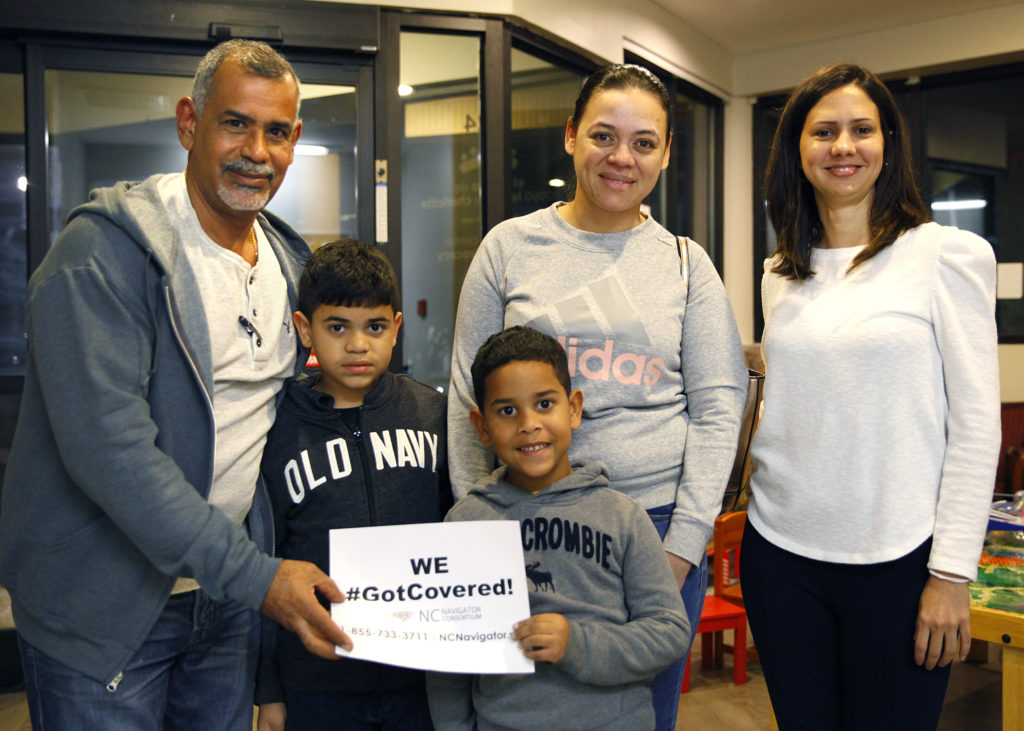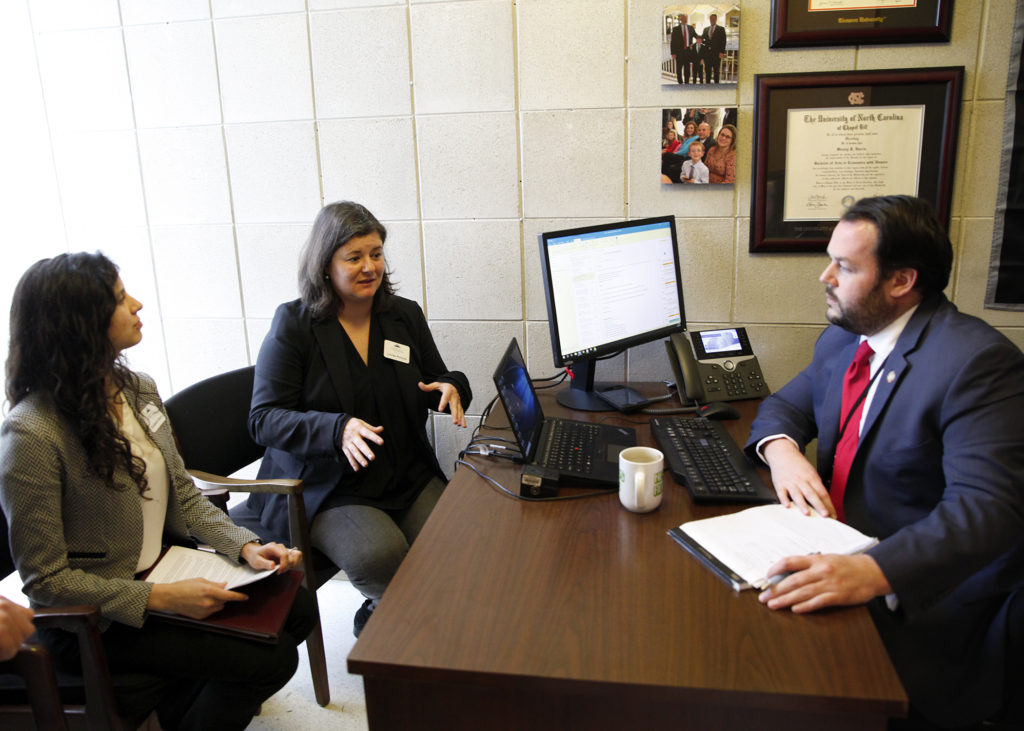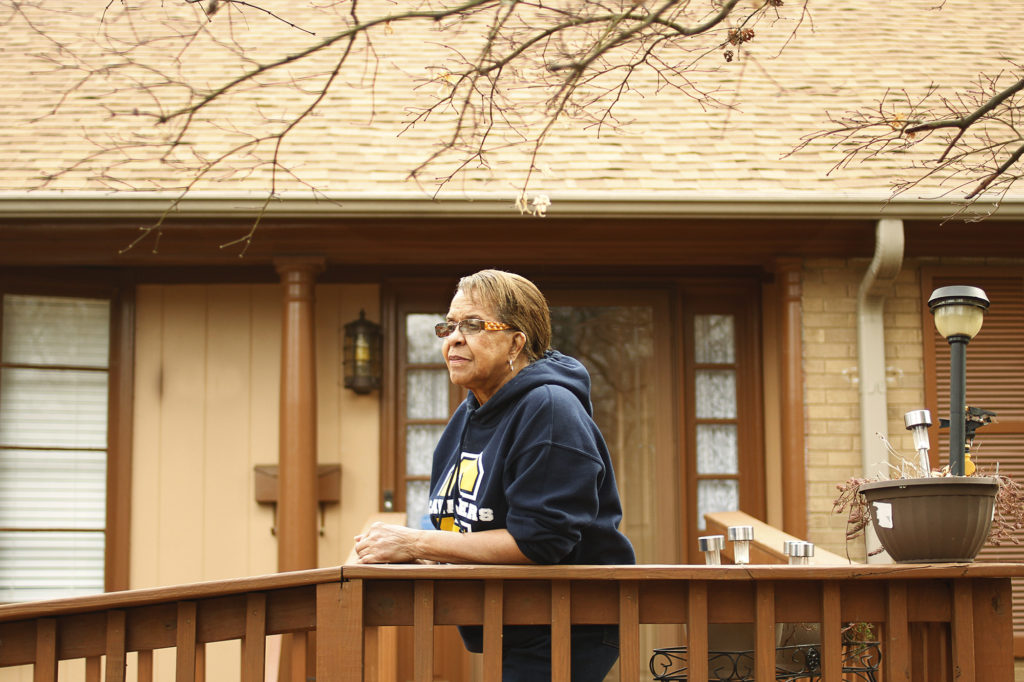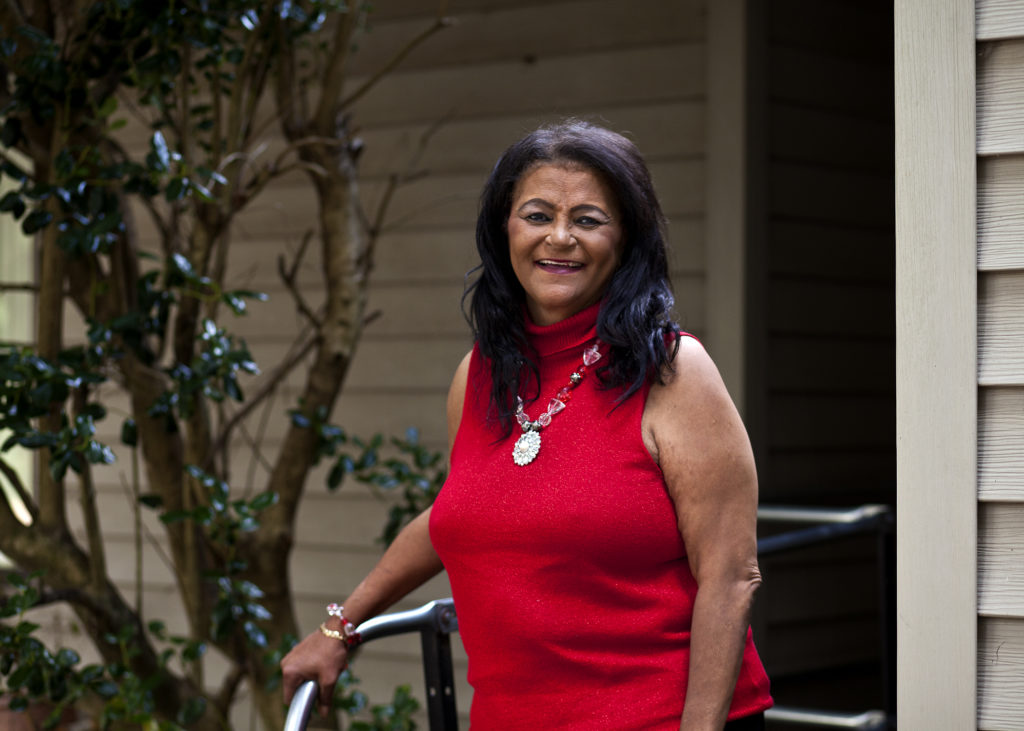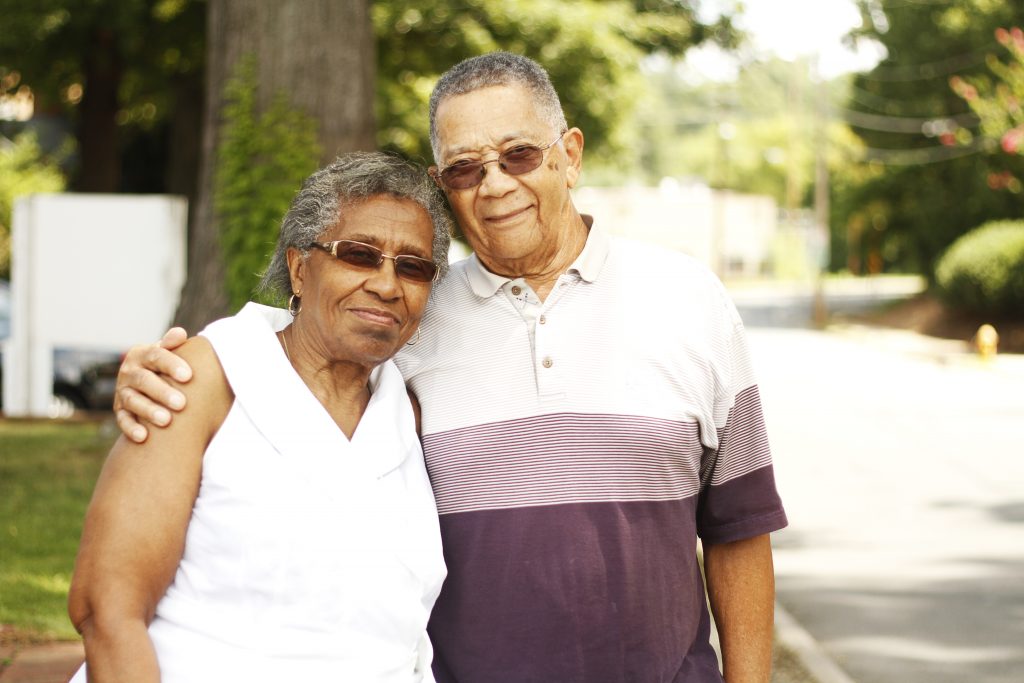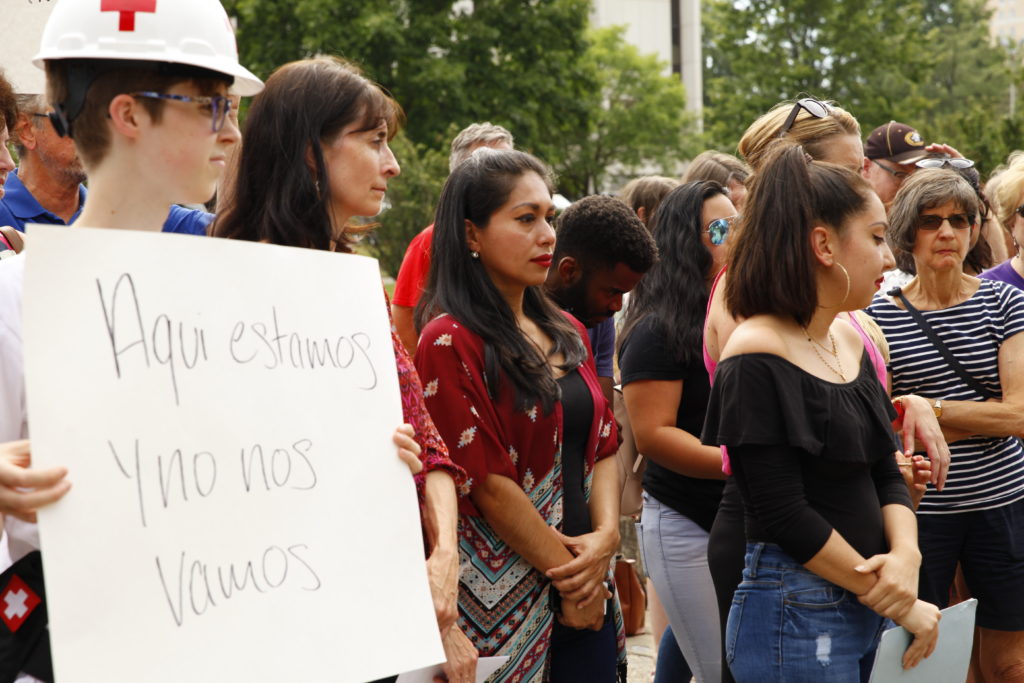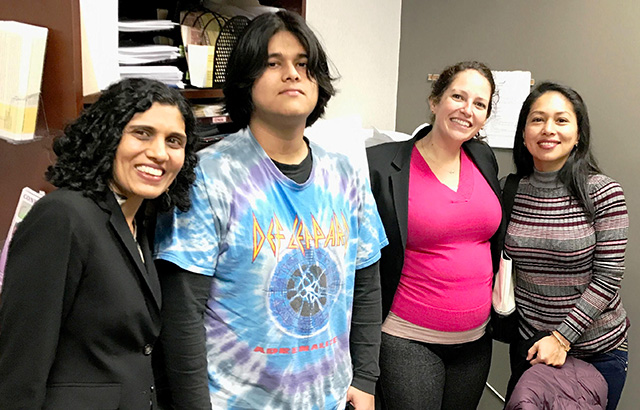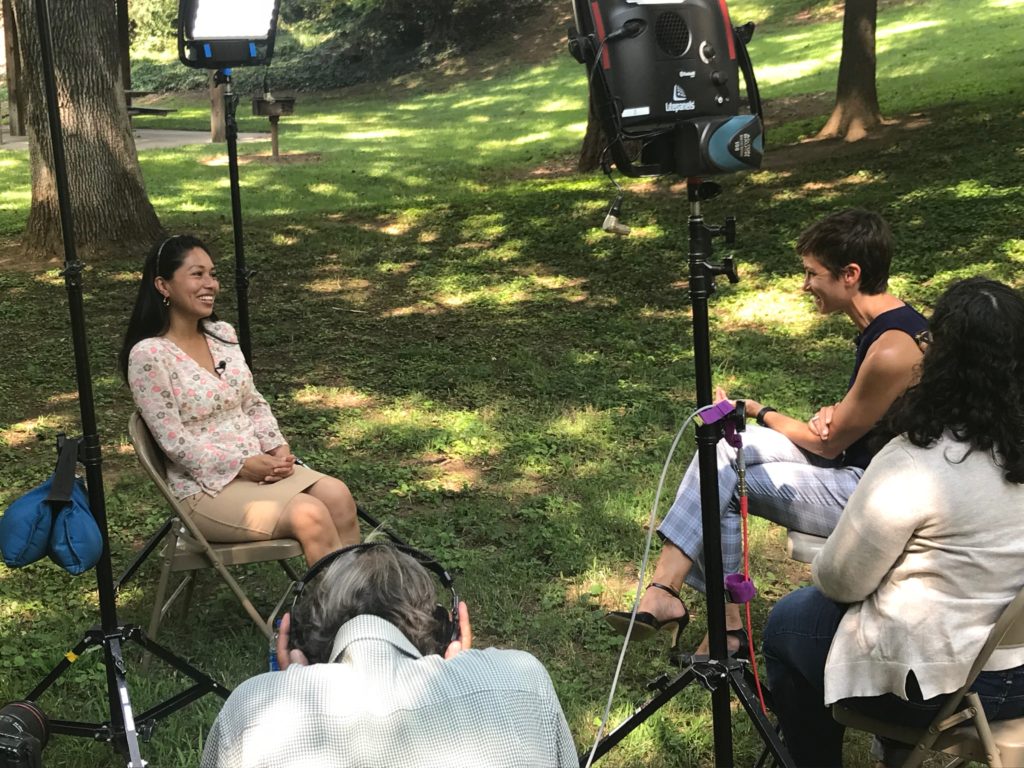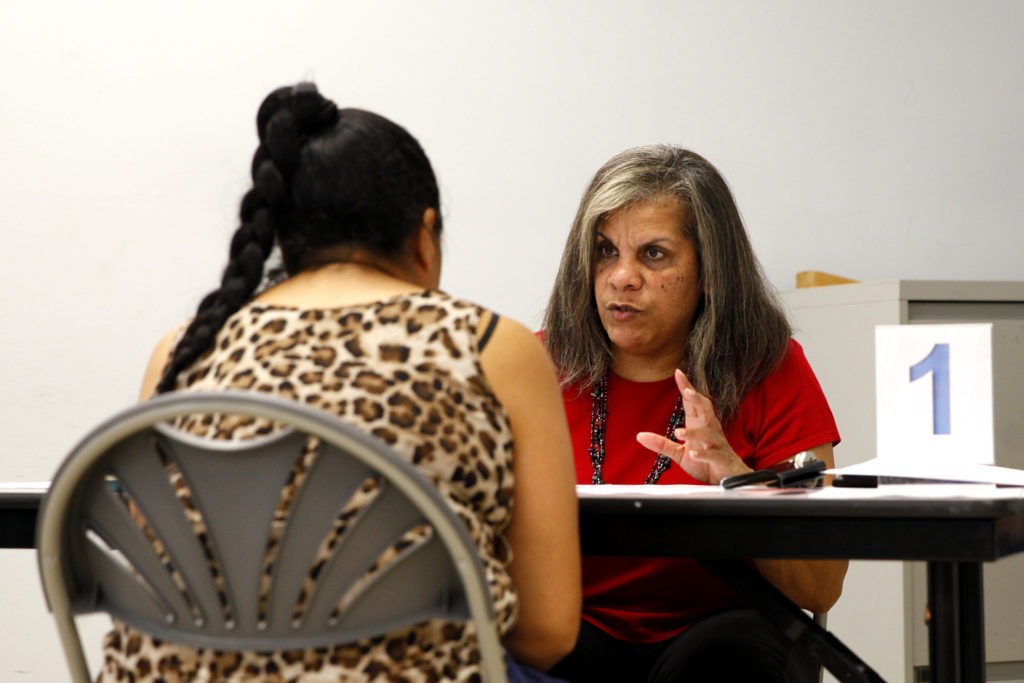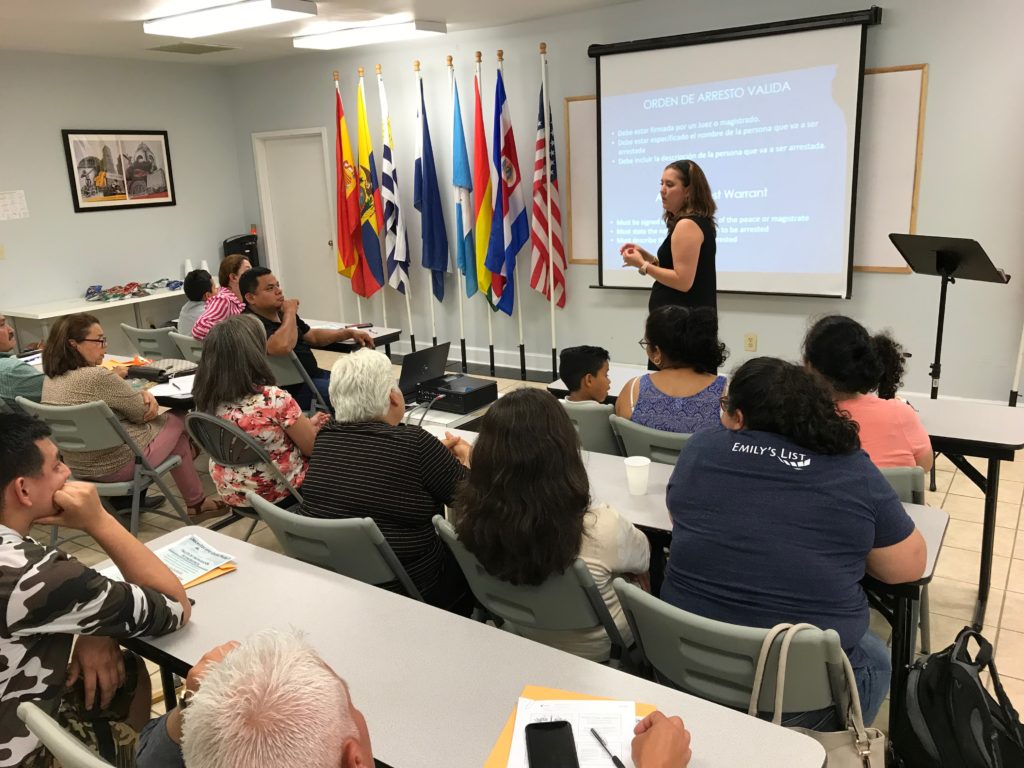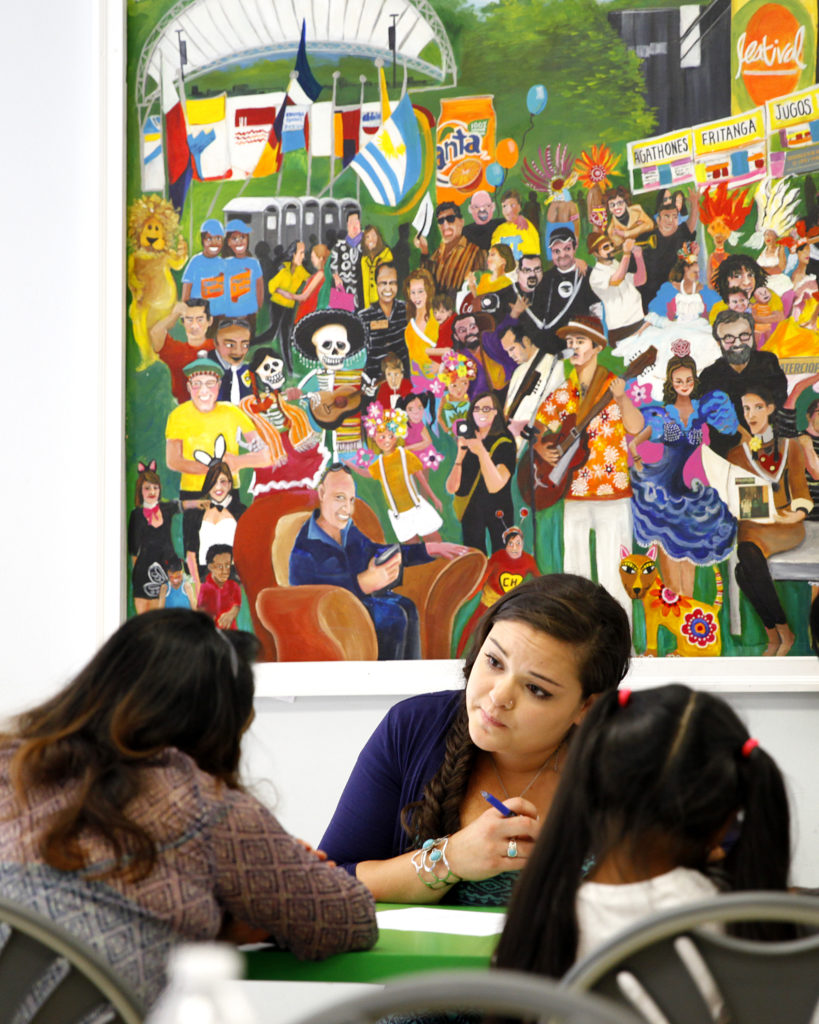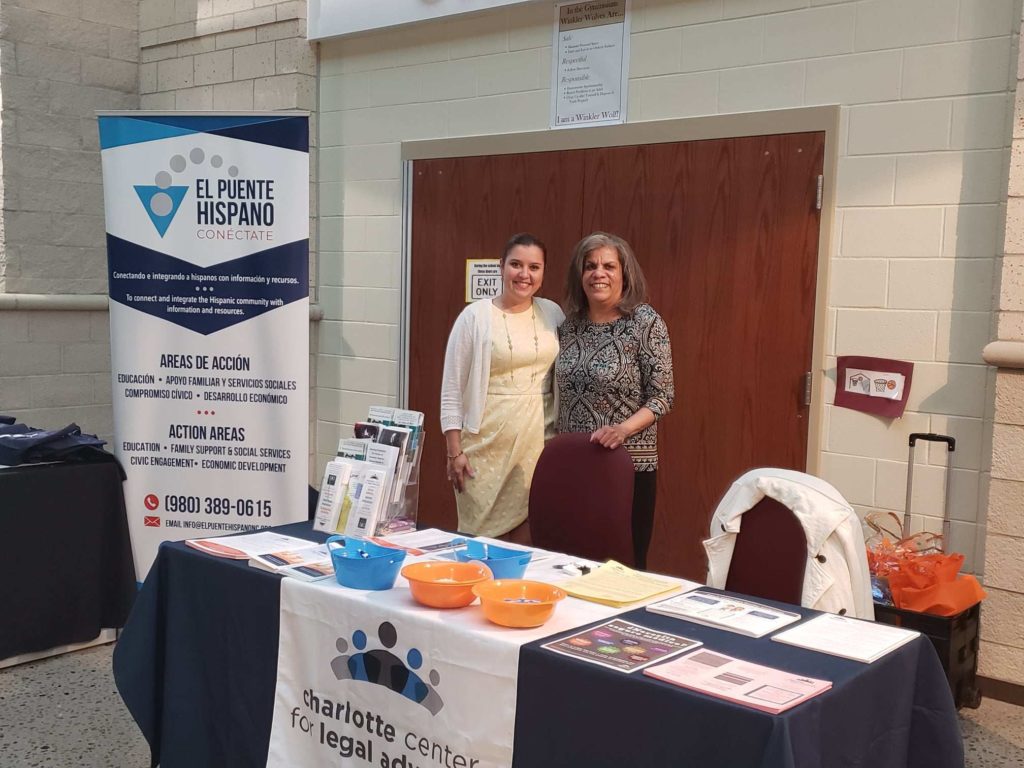Charlotte NC-The Charlotte Center for Legal Advocacy’s offices in east Charlotte were filled with lawyers and immigrants working together to file asylum applications on Saturday.
After people enter the country and are detained at the border, they generally have one year to file for asylum through an I-589 form. Though people can file the applications themselves without the aid of an attorney, legal assistance drastically improves their chances for success in immigration court.//accepted
This weekend’s clinic is the first of its kind in North Carolina, CCLA immigration attorney Rebekah Niblock said, though similar clinics have been held throughout the country.
Though the clinic’s participants won’t be legally represented by the CCLA in court, it’s a way for the agency, overburdened with requests, to expand its reach and serve more clients without having to turn anyone away.
“We can’t accept everyone,” Niblock said. “But the least we can do is help them get their applications out.”
Read more at: charlotteobserver.com
Tag: Immigration Court
Then & Now: A Decade of Justice
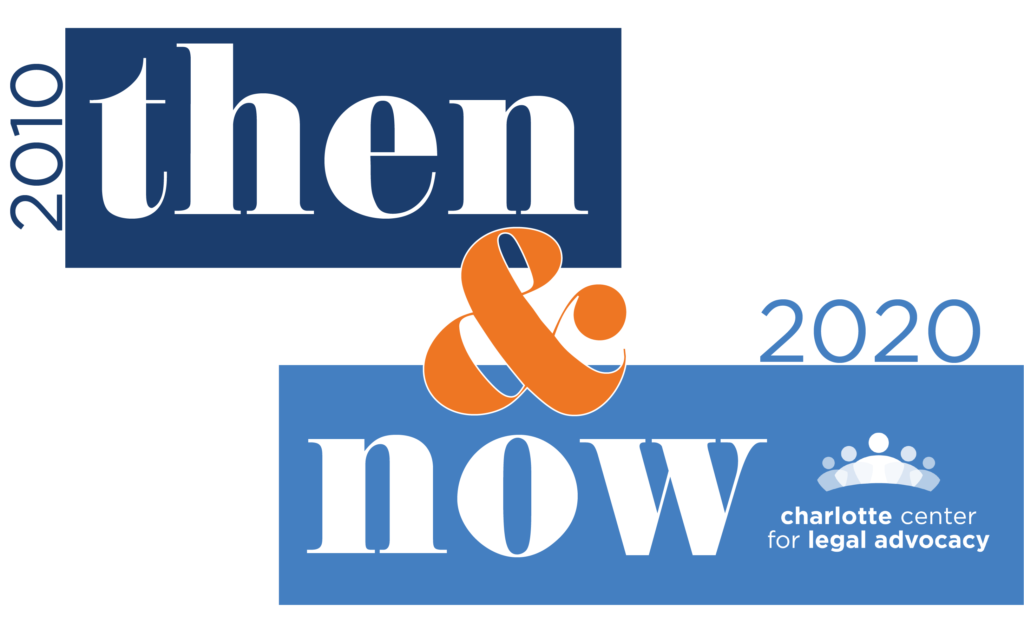
In 2010 …
Charlotte was recovering from the Great Recession, which had destabilized thousands of people through job and home loss that eroded financial security.
As a result, Charlotte Center for Legal Advocacy saw the overall community need for legal assistance increase by 15%, including an overwhelming need from families facing foreclosure.
The Recession’s effects continued to be felt throughout the decade to shape our community, to define the issues of economic mobility and inequity we fight to address, and to steadily impact the people the Advocacy Center serves today.
As we mark the passing of a critical decade for Charlotte, we’re taking a look back at the work we’ve done to build a more just community for everyone in the Charlotte region.
Then
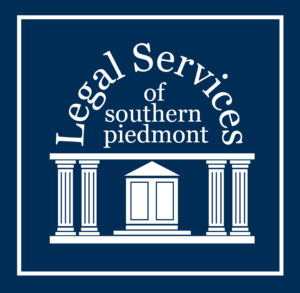
Our name was Legal Services of Southern Piedmont, a name we had been operating under since 1978.
Number of staff: 19
Now
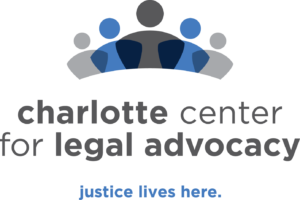
Today we are Charlotte Center for Legal Advocacy! In 2017, we changed our name and celebrated 50 years of service.
Number of staff: 50
Our new name reflects our commitment to providing both individual legal representation and systemic change to advance our mission of pursuing justice for those in need.
Growth to Address Systemic Problems in a Changing World
Since 2010, we’ve launched several projects to meet increased demand for assistance, creatively address the root causes of poverty and support our community’s most vulnerable populations, including:
- Carolinas Medical-Legal Partnership: addressing social determinants of health to improve outcomes for Atrium Health patients.
- Veterans Legal Services Project: meeting specific legal needs of former service members and their families to ensure access to benefits earned while serving our country.
- Immigration Assistance Project: providing free legal screenings and assistance to applicants in Charlotte’s Immigration Court.
- Health Insurance Navigator Project: helping consumers understand their options in a complex, changing health insurance landscape while ensuring access to health care under the law.
- CPPC Single Stop Educational-Legal Partnership: supporting students as they pursue economic mobility by helping them overcome civil legal barriers to their education.
- Community Redevelopment Project: promoting focused economic development, stable housing and entrepreneurship in targeted communities.
- Senior Health Care and Abuse Prevention Project: protecting seniors from physical and emotional abuse, as well as financial exploitation, while ensuring access to health care.
Access to our legal system
Life altering decisions are made every day in our civil legal system that directly impact a person’s chance at a stable life and opportunity.
Despite the gravity of these decisions, no one is guaranteed legal representation in civil legal cases, leaving only those who can afford an attorney with true access to justice.
Charlotte Center for Legal Advocacy and legal service organizations across the country fight to provide equal justice for all in a legal system that is currently inaccessible for those who lack the money and resources to navigate it.
Federal funding for legal service organizations through the Legal Services Corporation (LSC) peaked in 2010. The funding increase was necessary to support legal service organizations assisting an increasing number of people while having lost key funding resources during the Recession. Funding has not increased since, despite the fact 25 percent more people qualify for legal assistance today than in 2007.
Charlotte Center for Legal Advocacy does not receive LSC funding (learn why), but we advocate for sustained and increased funding for our partners that do, such as Legal Aid of North Carolina.
A 2014 impact report from the N.C. Equal Access to Justice Commission showed that 2.2 million North Carolinians qualified for civil legal aid services and 80 percent of civil legal needs of low-income people went unmet.
Despite these unmet needs for civil legal aid, the N.C. General Assembly eliminated $1.7 million in funding for the Access to Civil Justice Act that enabled the state’s legal service organizations, Charlotte Center for Legal Advocacy, Legal Aid of North Carolina and Pisgah Legal Services, to help people navigate their way out of crisis.
Today, the gap between access and justice is still wide:
- 1 in 3 Mecklenburg County residents is low-income.
- 71 percent of low-income people experienced at least one civil legal problem in the last year,
- Only 14 percent received the legal help they needed to address their problem.
- In Mecklenburg County, there ONE legal aid attorney available to every 11,500 low-income residents between the Advocacy Center and Legal Aid.
Learn about the justice gap and how you can help
Affordable housing and protection from housing displacement
By 2010, the Advocacy Center was assisting families who were fighting foreclosure and trying to put their financial lives back together in the wake of the global financial crisis. When the housing crisis peaked in 2009, more than 12 million homeowners were experiencing negative equity across the U.S.
Today, the Advocacy Center helps families and communities navigate Charlotte’s affordable housing crisis as more people struggle to find and remain in affordable places to live. That assistance includes foreclosure prevention; defense against unfair and deceptive sales and purchases; property tax relief; and impact litigation on behalf of tenants to ensure safe and habitable housing conditions under N.C. law, including a class action lawsuit on behalf of residents of Lake Arbor Apartments.
Welcoming Immigrants into Our Community
Charlotte’s Immigration Court opened in 2008 to serve applicants from North and South Carolina. The Advocacy Center’s Immigrant Justice Program began serving applicants who could not afford legal assistance in the court, which quickly gained a reputation as one of the most hostile in the country.
With the Immigration Working Group, the Advocacy Center began the Immigration Assistance Project in 2010 to help unrepresented people in the court, providing consultation, education and referrals to assist them in court proceedings. Since its creation, it has been a vital legal resource to thousands of people that is not available in most immigration courts.
Today Charlotte’s Immigration Court continues to be one of the most hostile courts for applicants seeking immigration relief with judges known for their high denial rates.
By 2014, violence and instability in Central America generated a wave of unaccompanied migrant children traveling to the U.S.-Mexico border seeking asylum, safety and reunification with family already living in the U.S.
The Advocacy Center launched the Safe Child Immigrant Project to ensure these children had an advocate.
Without our intervention, these children would have had not have had legal assistance to make their case for asylum, special immigrant juvenile status or other forms of relief they were entitled to receive.
Due to an overwhelming backlog, the first green cards from many of these cases were finally granted in 2018, allowing these children and their families to remain safely in the U.S. without fear of return to dangerous situations in their home countries.
This victory is a stark comparison to the current reality for thousands of children seeking relief at the U.S. border. They will not see the same outcome under current federal immigration enforcement, even though they have endured the same hardships and have the same valid claims for relief as these new green card recipients.
The Advocacy Center remains a presence in Immigration Court serving as a legal resource for individuals who otherwise would not receive any assistance and an advocate fighting to ensure dignity, fairness and due process for applicants.
Economic mobility
The Advocacy Center fought to maintain public benefits that stabilize families, while also ensuring access to them with increased demand for social support after the Recession, including SNAP benefits (food stamps) and the Earned Income Tax Credit.
Today, the Advocacy Center is still fighting cuts and policies that destabilize families at the federal and state level, while helping families understand what is available under changing laws and policies.
Since 2018, the Advocacy Center has fought changes to the federal Public Charge rule to consider use of public benefits to determine approval for people seeking to immigrate to the U.S. or applying for a green card to become legal permanent residents. Confusion and fear surrounding the rule change has led local families who are eligible to receive public benefits to forego support out of fear. Federal courts halted the rule’s implementation in October 2019, and the Advocacy Center continues to monitor ongoing litigation.
Our Low-Income Taxpayer Clinic is educating N.C. taxpayers on new regulations stemming from federal tax reform passed in 2018, while continuing to help taxpayers protect themselves from scams and fraud.
In conjunction with a new state law changed the waiting period for expunging non-violent misdemeanor and felony criminal convictions in 2017, the Advocacy Center began helping Mecklenburg County residents apply for removal of non-violent, eligible offenses from their criminal records. This project sought to remove barriers to economic mobility that come with having a criminal record. In FY19, we assisted 217 people to expunge criminal records in N.C. and advocated for passage of expanded eligibility for expungements in the N.C. General Assembly.
In 2016, the Advocacy Center partnered with Central Piedmont Community College’s Single Stop program to provide legal assistance that helps students overcome barriers to their education and pursue economic opportunity. In the first two years, the partnership provided $72,855 in legal assistance while obtaining or preserving $103,462 in public benefits for students and their families.
Access to quality, affordable health care
The Advocacy Center has been litigating to ensure families have the health care they are entitled to receive under the law through major cases, including:
- Pashby v. Cansler, later Pettigrew v. Brajer: The lawsuit, initially named Pashby v. Cansler, was filed in 2011 by the Advocacy Center, Disability Rights N.C. and the National Health Law Program, alleging that the state violated federal Medicaid law and the Americans with Disabilities Act by determining eligibility for personal care services under more restrictive criteria for people living at home than for those who live in institutional settings known as adult care homes. A settlement was reached in 2016, allowing vulnerable citizens who need health services to safely remain in their homes and have their services restored.
- Pachas v. NCDHHS: The Advocacy Center brought the case on behalf of a terminally ill man, who had been the primary provider for his wife, two young daughters, and elderly in-laws. Pachas was trying to support his family on Social Security disability benefits before eventually qualifying for Medicaid benefits that covered his medical treatment for a stroke and a brain tumor. Mecklenburg County Department of Social Services determined Pachas’ income was above the federal poverty level based on the level of an individual, not for a family, and required him to pay a large deductible on his Medicaid benefits. In 2018, attorneys argued before the N.C. Court of Appeals that the state was violating federal Medicaid law in applying its definition of family size to determine eligibility for benefits. The N.C. Supreme Court heard arguments on the case in 2018 and unanimously ruled in favor of the Center to vacate the Court of Appeals ruling. The case is now with the Court of Appeals for a ruling on the merits of the case.
- Hawkins v. Cohen: The Advocacy Center and the National Health Law Program filed a lawsuit in federal court in 2017 to stop illegal terminations of Medicaid benefits in North Carolina that resulted in a preliminary injunction and a certified class action. The improper actions included due process violations, failure to reasonably accommodate the disabled, and creating barriers to access for recipients with limited English proficiency. The class action is ongoing. As a result, the state changed its computer system earlier this year to stop Medicaid coverage from automatically terminating when a county worker does not timely complete a required eligibility review. Under this programming change, Medicaid coverage for more than 124,000 cases was extended in the past two months that would otherwise have been terminated without notice.
With the first open enrollment season for health insurance under the Affordable Care Act (ACA), the Advocacy Center launched the Health Insurance Navigator project to help consumers understand their options and get the health care they needed under the new law.
Since 2013, we’ve helped thousands of people understand their options and get health coverage, while reducing the state’s uninsured rate. The navigator project has been recognized as a national model and received a visit from Sylvia Burwell, U.S. Secretary of Health and Human Services, in 2015.
At the end of 2019, our health insurance navigators completed their seventh open enrollment season, helping residents in Cabarrus, Mecklenburg and Union counties understand their coverage options in a changing healthcare landscape to select health plan that meet their individual needs and budget.
The ACA included opportunity for states to expand their Medicaid programs and close the coverage gap for low-income people to insure all Americans. The Advocacy Center began advocating for expansion of the state’s Medicaid program in the N.C. General Assembly, which has failed to act. Expansion would insure an estimated 500,000 NC residents who make too little to afford private health coverage but too much to receive financial assistance paying for coverage. Expansion also would have lowered overall health costs for residents and spurred an estimated $2.9 billion in business growth by 2020.
Today we are still urging the N.C. General Assembly to expand Medicaid so that more residents have access to health care. Residents like Allan.
The N.C. General Assembly approved changes to the state’s Medicaid program in 2015 that privatized the administration of the program. The Advocacy Center has been working with providers and beneficiaries to make sure they understand what the change means and how to continue receiving health care. The Advocacy Center is also monitoring the change to ensure access under the law. The implementation of the new program was supposed to take place in fall 2019, but it has been delayed due to the legislature’s inability to pass a budget.
Protection from exploitation
To improve quality of life and ensure independence, the Advocacy Center has worked to empower seniors through education, legal representation and specific services that enable them to remain self-sufficient, their property unencumbered and their finances protected through the Legal Services for the Elderly program and other projects.
The Advocacy Center’s Consumer Protection program has continually worked to protect low-income people from scams and bad actors taking advantage of vulnerable groups who lack access to resources to understand their rights as consumers.
Immigrants have historically been targets for exploitation in our country. The current administration’s “zero-tolerance” policy toward immigrants who are undocumented has exacerbated their vulnerability and stoked fear in families, regardless of immigration status.
For 12 years, Mecklenburg County’s 287(g) program facilitated hundreds of deportations by assisting federal Immigration and Customs Enforcement (ICE) in implementing federal immigration enforcement at the local level. The voluntary program directed police to target, arrest and hold residents living in our community without a legal immigration status.
This practice tore families apart, made immigrants vulnerable targets and eroded trust of law enforcement, all while diverting local taxpayer funds away from public safety to enforce federal immigration policy, which is outside the jurisdiction of local law enforcement agencies. The Advocacy Center has long believed this policy has harmed our community by undermining public safety, depriving individuals of due process, wasting county resources, and exposing tax payers to potential legal settlements.
Mecklenburg County Sheriff Gary McFadden ended the 287(g) program in late 2018 after winning election on the issue. In 2019, Gov. Roy Cooper vetoed the N.C. General Assembly’s mandate that local sheriffs cooperate with ICE and honor detainer requests. The Advocacy Center continues to monitor local and state policies that negatively impact immigrants in our community.
In 2018, the Advocacy Center fought against ICE presence in our courts after officials arrested a woman and her 16-year-old son at the Mecklenburg County Courthouse, leaving her 2-year-old child behind in the court’s day care center as they took her into custody and placed her in deportation proceedings. This woman, Maria, and her son are survivors of domestic violence who were appearing for a hearing in their case.
The arrest became part of a national dialogue on how ICE activity in courthouses negatively impacts public safety and the ability for crime victims, especially victims of domestic violence, to seek justice.
The Charlotte Immigration Court later terminated her deportation case with the support of ICE, allowing Maria and her family to remain in the U.S. as they pursued a U-Visa, which provides protected status to victims of crime. The victory came after months of negotiation with ICE through the partnership of Charlotte Center for Legal Advocacy, Comunidad Colectiva and the National Immigration Project of the National Lawyers Guild.
In response to increased ICE activity since 2017, the Advocacy Center has partnered with community groups, including Action NC, Comunidad Colectiva, El Puente Hispano and the Latin American Coalition to help individuals understand their civil rights and provide emergency planning for families in the event of family separation through arrest and deportation.
A decade of justice
Charlotte Center for Legal Advocacy has covered a lot of ground over the last 10 years, but the gap between access and justice remains wide.
In the decade ahead, Charlotte Center for Legal Advocacy remains committed to closing that gap by building a more just community where all are treated fairly and have access to legal representation to meet their basic needs and thrive.
In 2020 and beyond…
We will always fight to ensure
- Access to our legal system
- Affordable housing and protection from housing displacement
- All feel welcome in our community
- Economic mobility
- Access to quality, affordable health care
- Protection from exploitation
While the means to accomplishing our mission will change with the needs of our community, our resolve to pursue justice for those in need remains constant. Because we believe …
justice lives here.
Judge Promoted by Trump Administration Threatened a 2-Year-Old With an Attack Dog
On March 30, 2016, in an immigration courtroom in Charlotte, North Carolina, a 2-year-old boy was doing what you might expect: He was making some noise. But Judge V. Stuart Couch—a former Marine known to have a temper—was growing frustrated. He pointed his finger at the Guatemalan child and demanded that he be quiet.
When the boy failed to obey his command, the threats began. “I have a very big dog in my office, and if you don’t be quiet, he will come out and bite you!” Couch yelled.
Couch continued, as a Spanish-language interpreter translated for the child, “Want me to go get the dog? If you don’t stop talking, I will bring the dog out. Do you want him to bite you?” Couch continued to yell at the boy throughout the hearing when he moved or made noise.
Kathryn Coiner-Collier, the only independent observer in the courtroom that day, says her mouth was on the floor as Couch made his threats. She sometimes saw Department of Homeland Security dogs sweeping the court building, and it was completely plausible to her that dogs could have been there that day. Coiner-Collier, then a coordinator for a project run by the Charlotte Center for Legal Advocacy to assist immigrants who couldn’t afford attorneys, says she “ferociously scribbled everything” Couch was saying. Soon after, she wrote an affidavit containing the dialogue above, and Kenneth Schorr, the Charlotte Center for Legal Advocacy’s executive director, submitted a complaint to the Justice Department in April 2016.
Additional coverage
New York Times, Kristof: Our Children Deserve Better
WCNC: Charlotte immigration judge threatened to sic “big dog” on child during hearing
Ignoring Flores to Detain Families is Inhumane
Because Charlotte Center for Legal Advocacy defends migrant adults, families and children in Charlotte’s Immigration Court, we are extremely concerned by the Trump administration’s recent decision to indefinitely detain migrant children who cross the U.S.-Mexico border.
This week, the Trump administration announced a new immigration rule that attempts to override policy set by the Flores settlement to allow the administration to keep families in detention facilities while they fight their asylum cases.
The Flores settlement has prohibited the U.S. government from detaining migrant children for more than 20 days. The Flores settlement was reached because of the inhumane conditions in detention centers and because of the special psychological and emotional vulnerability of children.
The administration’s unilateral repeal of the Flores settlement is a shameful attempt to prevent Central Americans from availing themselves of our country’s asylum laws and to punish them and their children for seeking asylum by keeping them incarcerated. It is unacceptable.
The new regulations will further erode families’ ability to seek legal assistance, which is critical for anyone seeking relief in our immigration courts. Most detention facilities are in remote areas where few, if any attorneys practice, making it difficult for detained people to get representation. Only those who can afford an attorney can get the legal assistance they need.
All migrants, even children as young as 3 and 4, are expected to fight their own immigration cases against the government if they cannot find or afford an attorney.
The administration has claimed it is pursuing this policy in order to avoid “having to separate families [and] allow families to be released as they wait for their cases to be heard.”
There is no law that requires the Department of Homeland Security to hold asylum seekers pending trial. Contrary to what this administration would have us believe, the Department of Justice’s own statistics show that most respondents show up to their hearings in immigration court.
Those rates were even higher for respondents who participated in the Family Case Management Program, a program that was started in 2016. Instead of incarcerating immigrants at the cost of hundreds of dollars a day, immigrants were released and assigned a case worker who made sure they understood how immigration court works and what their rights and obligations were. The program cost about $36 per person per day and had a compliance rate of 99 percent. The Trump administration discontinued the Family Case Management program in favor of incarceration.
Charlotte Center for Legal Advocacy believes all people, especially vulnerable children, deserve legal assistance when their safety is on the line. That’s why we advocate for migrant adults, families and children, most of whom, have been subjected to some form of trauma over the course of their young lives.
Their cases will take years to process through an overburdened immigration court system. Now this administration wants to detain them indefinitely as they wait for their day in court.
This is unacceptable. As a community and nation of immigrants, we can do better.
Thousands of immigrants seek asylum in Charlotte court. Nearly all will lose.
Charlotte N.C.- “Stand up and raise your right hand,” Judge William Riggs said.
He looks expectantly at a Central American man in front of him, who’s wearing headphones to listen to the Spanish interpreter to the left of Riggs. Before she finishes translating, Riggs raises his own right hand to demonstrate the action.
After the man takes an oath, a baby, in the wooden benches designated for observers, starts whining. The mother bounces her knees up and down, attempting to soothe the child.
The immigrant’s lawyer explains his claim, and at one point, Riggs rests his chin in his hand.
It’s about 9 a.m., and this is the first of dozens of asylum cases he’ll hear that day. Once the lawyers finish, he either assigns a later individual hearing or orders the respondent removed from the country.
All of this takes place in Charlotte’s immigration court, located in a mundane office building in east Charlotte. There isn’t a sign outside to identify it, and once inside, you have to take a rickety elevator to the fourth floor — just three floors above an immigration law firm.
That’s where anyone in the Carolinas has to go to claim asylum, and its four judges are some of the strictest in the country.
Read more at charlotteobserver.com
